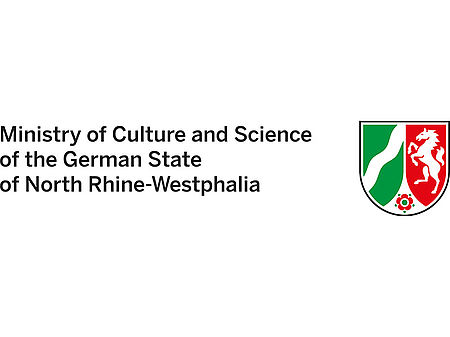What do Creative Commons licenses offer?
The following information relates primarily to the use of CC licences in scholarly and scientific publishing.
To find out how these licences are used in other contexts, please refer to the Creative Commons help pages.
What situations can CC licences be used in?
Creative Commons (CC) is a non-profit organisation that provides a standard set of copyright licences which allow creators to define which rights they wish to retain and which rights they choose to give to others. By default, copyright law reserves all exploitation rights exclusively for the copyright holder and excludes anyone else from exploiting a copyrighted work. The Creative Commons system introduces a more flexible means by which authors can control how they wish to share their works.
Creative Commons licences can only be applied to copyrighted works and can only be granted by the rights holder. That means that CC licences cannot be granted by authors who have signed over all their exploitation rights to a publisher or who have only retained a non-exclusive exploitation right.
CC licenses can only be applied to research data if they meet a certain standard of originality and are subject to copyright. This excludes certain types of research data, such as measurement data. In case of doubt, situations should be reviewed on a case-by-case basis.
Creative Commons recommends against using CC licenses for software; instead, they encourage the use of specific open-source software licences.
The validity of a Creative Commons license is determined by the validity of the copyright.
Creative Commons licences are a form of open content license. Other open content licenses include the General Public License (GNU) for software licensing and various alternatives to CC licences. However, CC licenses are probably the most widespread option. They are even used by scientific publishers who run open access programs such as BioMed Central and SpringerOpen.
What types of Creative Commons licenses are available?
Creative Commons (CC) licences are composed of different elements, or conditions. These conditions are combined in order to create a licence that meets the creator's needs and grants the required exploitation rights. Each condition is represented by an acronym:
- Attribution: BY
- Non-commercial use: NC
- No derivative works: ND
- Share-alike: SA
Mixing and matching these elements produces a total of six commonly used licences:
- CC-BY: Attribution
- CC-BY-ND: Attribution, no derivative works
- CC-BY-NC: Attribution, non-commercial use
- CC-BY-NC-ND: Attribution, non-commercial use, no derivative works
- CC-BY-NC-SA: Attribution, non-commercial use, share-alike
- CC-BY-SA: Attribution, share-like
There is also a zero/public domain licence, CC0, which can be applied to data that is not copyright-protected to indicate that the material can be reused in the public domain without restrictions.
Use of the relevant acronyms makes it immediately clear how the work may be used. Permission must be sought for any usage that goes beyond the conditions stipulated in the licence.
It is not possible for copyright holders to subsequently revoke rights granted through a CC licence, since these are non-revocable.
Since Creative Commons licences are non-exclusive, additional individual agreements may be concluded with entities such as publishers in order to grant additional rights. Creative Commons also offers a License Chooser to help users select the most suitable licence.
Of the licences mentioned above, only CC-BY and CC-BY-SA meet the requirements of open access. These two licences grant several rights to others while still preserving the creator’s copyright and moral right.
Versions of Creative Commons licences
CC licences have been revised several times over the years, so a number of versions now exist. Version 4.0 is the current version. The conditions of use always depend on the CC license version which was used by the copyright holder. The licence conditions of older versions of the CC license are not automatically updated to the latest version. The version used in each case is indicated together with the licence conditions (e.g. CC-BY-SA 3.0 means that version 3.0 was used).
Earlier versions of the CC licence have been 'ported' to a number of different jurisdictions to reflect differing legal systems. Country codes are used to indicate the jurisdiction to which a licence has been ported. The code for Germany is DE. If there is no country code, or if the licence is described as unported, then the international version of the license applies. No country-specific ports have so far been implemented in version 4.0 of the CC licence. This is because version 4.0 has been optimised for international use.
Choosing and using CC licences
To ensure the validity of the allocated usage rights, the work must be labelled with the full licence name and the license terms must be included. This is often carried out by providing a link to the license terms. The CC icon alone does not provide sufficient information. The Creative Commons help page offers various options for integrating the corresponding licence acronym and its icon in an electronic text or in the metadata of a website. This makes the licence machine-readable, which means it can be read by search engines and similar systems. In addition, a corresponding link is used to point to the license terms which are provided in the form of both a simple overview and the full license text.
Please note that the more restrictive types of CC licences (all but CC-BY and CC-BY-SA) prohibit certain types of usage. Before choosing a licence, we recommend checking whether the restrictions it imposes are really necessary. The CC licences that explicitly exclude commercial use (NC) have been the subject of some controversy and debate as to what kinds of usage they actually exclude. To find out more, please download the "Practical Guide to Using Creative Commons Licenses".
Further information regarding the usage of Creative Commons licences can be found on the online help page provided by members of the German chapter of Creative Commons. Access page (German only)
Using CC-licensed content
The extent to which licensed content can be incorporated in your own work and potentially adapted or modified depends on the terms of the licence in each particular case. Under CC BY, which forms part of most CC licences, users must attribute the original work in the manner specified by its creator, as well as providing a link if the original resource is online. Respecting the importance of attribution is a key principle of good research practice.
Some CC licences permit modifications to be made to the original work. Any such modifications made by the user must be clearly specified.
If CC-licensed content is incorporated into a work that is not published under a Creative Commons licence, the CC-licensed content must be marked accordingly, including a clear indication of the licence under which it was originally published.
Caution is advised when incorporating images and illustrations from image platforms and similar sources: not all of these images will have been uploaded by the rights holder and provided with a licence, so it is important to confirm whether the license is actually valid if there is any doubt as to its legitimacy.
Incorporating non-CC-licensed content into a CC-licensed work
When incorporating non-CC-licensed content into a work that is to be published under a CC licence, the non-CC-licensed content must be marked accordingly. In other words, it is necessary to clarify that the licence selected for the work as a whole does not apply to the non-CC-licensed content. Permission must be sought from the rights holder before incorporating content that goes beyond what is permitted in the copyright rules on referencing other works.
Requirements stipulated by research funders
Some funders (e.g. the Wellcome Trust) stipulate which CC licenses have to be used. It is recommended to check these requirements before publication. If a publisher offers a different CC licence which does not match the licence specified by a funder, this issue should be discussed before concluding the contract, and an exception should be sought where applicable.
See also
Funding: what requirements do funders impose in regard to open access?
Should researchers be cautious about using certain Creative Commons licences?
It is important to remember that Creative Commons licences originated in the creative industries, so some CC modules and module combinations may not be suitable for academic use. CC-BY and CC-BY-SA licences have become widely accepted in the field of scholarly publishing, with CC-BY-NC also a popular choice for books. Yet academic authors continue to be cautious about using the more liberal types of CC licences that offer the greatest benefits in terms of distribution and accessibility, because they are afraid of losing control over their work. One way of easing these fears is by reminding authors that their work is still protected under copyright. What’s more, the principles of good research practice also offer a useful framework for determining how the work of others may be reused, especially in the field of scholarly publishing. If a licence is breached – for example, if a work is used in a context other than those permitted under the licence – there is plenty of scope to take action. More information on this can be found on the Creative Commons help pages and in the FAQs.
Disclaimer
Important note: The information and links provided here do not represent any form of binding legal advice. They are solely intended to provide an initial basis to help get you on the right track. ZB MED – Information Centre for Life Sciences has carefully checked the information included in the list of FAQs. However, we are unable to accept any liability whatsoever for any errors it may contain. Unless indicated otherwise, any statements concerning individual statutory norms or regulations refer to German law (FAQ updated 05/2023).
Contact

Dr. Jasmin Schmitz
Head of Publication Advisory Services
Phone: +49 (0)221 999 892 665
Send mail
References
FAQ über Creative Commons of 1 September 2021, Version 1.02. Creative Commons CC-Germany. (accessed 20/06/2023) (German only)
Kreutzer, T. (2016). Open Content - Ein Praxisleitfaden zur Nutzung von Creative-Commons-Lizenzen. Deutsche UNESCO-Kommission e. V., Hochschulbibliothekszentrum des Landes Nordrhein-Westfalen, Wikimedia Deutschland – Gesellschaft zur Förderung Freien Wissens e. V. (German only)
S. Amini et al. (2015). FAQs zu Creative-Commons-Lizenzen unter besonderer Berücksichtigung der Wissenschaft. E-infrastructures Austria. (German only)
Related links
Creative Commons - Choose a License
Fischer, G. (2022). Wie offen darf es sein? Was man beim Einräumen von CC-Lizenzen wissen sollte. Irights.info, 1 March 2022 (accessed 20/06/2023) (German only)
Creative Commons - What to Do if Your CC-Licensed Work is Misused




